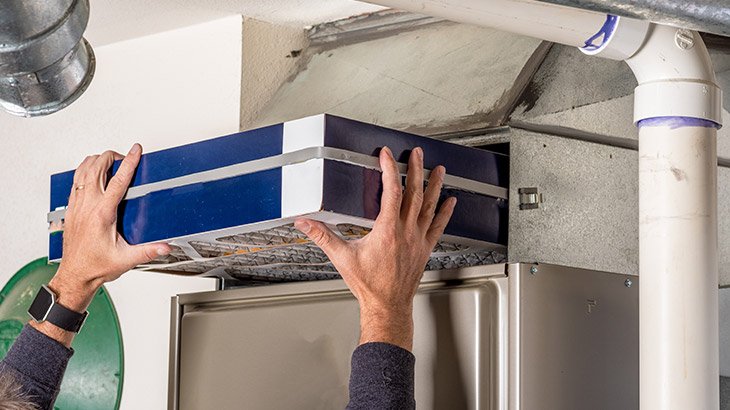Synthetic, Pleated, Electrostatic, oh my! What furnace filter is best? And, what does HEPA even mean?! When you’re wondering about furnace maintenance in Calgary, you’ve come to the right place.
First, you need to understand why filters are so important and when you need to replace or clean them over time. It’s a furnace filter’s job to keep the furnace unclogged. Air needs to move freely through the system, but dust and other particles can make your furnace’s components dirty. A dirty furnace doesn’t function efficiently. Frankly, your furnace’s lifespan could be shortened by missing or dirty filters, and you’ll need more repair visits from you local furnace maintenance company in Calgary.
Let’s sort out what kind of furnace filters are best for you:
Synthetic Filters
Synthetic filters are also known as fiberglass filters. Their mission is to catch larger particles so that your furnace’s parts (like the motor) stay clean.
Here are a few pros and cons of synthetic-type filters:
- They’re inexpensive.
- The filters are disposable.
- They don’t catch smaller air particles, so your air isn’t as clean and healthy as filter types that remove allergens or some viruses.
HEPA Filters
HEPA (High-Efficiency Particulate Arrestance) filters are a pleated mechanical air filter. A true HEPA filter will remove an astounding 99.97 percent of dust particles (0.3 to 10 microns in size). But beware of false advertising: Manufacturers may indicate their product is HEPA when it’s below the 99.97 percent rating.
Also, HEPA filters:
- trap allergens from the air
- are the most efficient type of filter
- can be washable so you can save money
- last the longest (but are the most expensive)
Pleated Filters
Pleated filters work better than non-pleated filters, because this filter type has more room to catch particles. This kind of filter works hard since it catches more contaminants than non-pleated, so you’ll need to replace it about every 30-90 days. The MERV ratings for pleated filters are usually 6-12.
Electrostatic Filters
Electrostatic filters use fibers that charge themselves to attract particles. Filters can be disposable or washable depending on which your particular furnace calls for. Washable ones need to be washed with soap and dried completely so they don’t become moldy.
Synthetic, HEPA, Pleated, and Electrostatic filters all have pros and cons. Choosing efficient filters and routinely replacing or washing them can extend the lifespan of your furnace. If you still have questions about furnace maintenance in Calgary, give Rapid Furnace Repair a call today!
